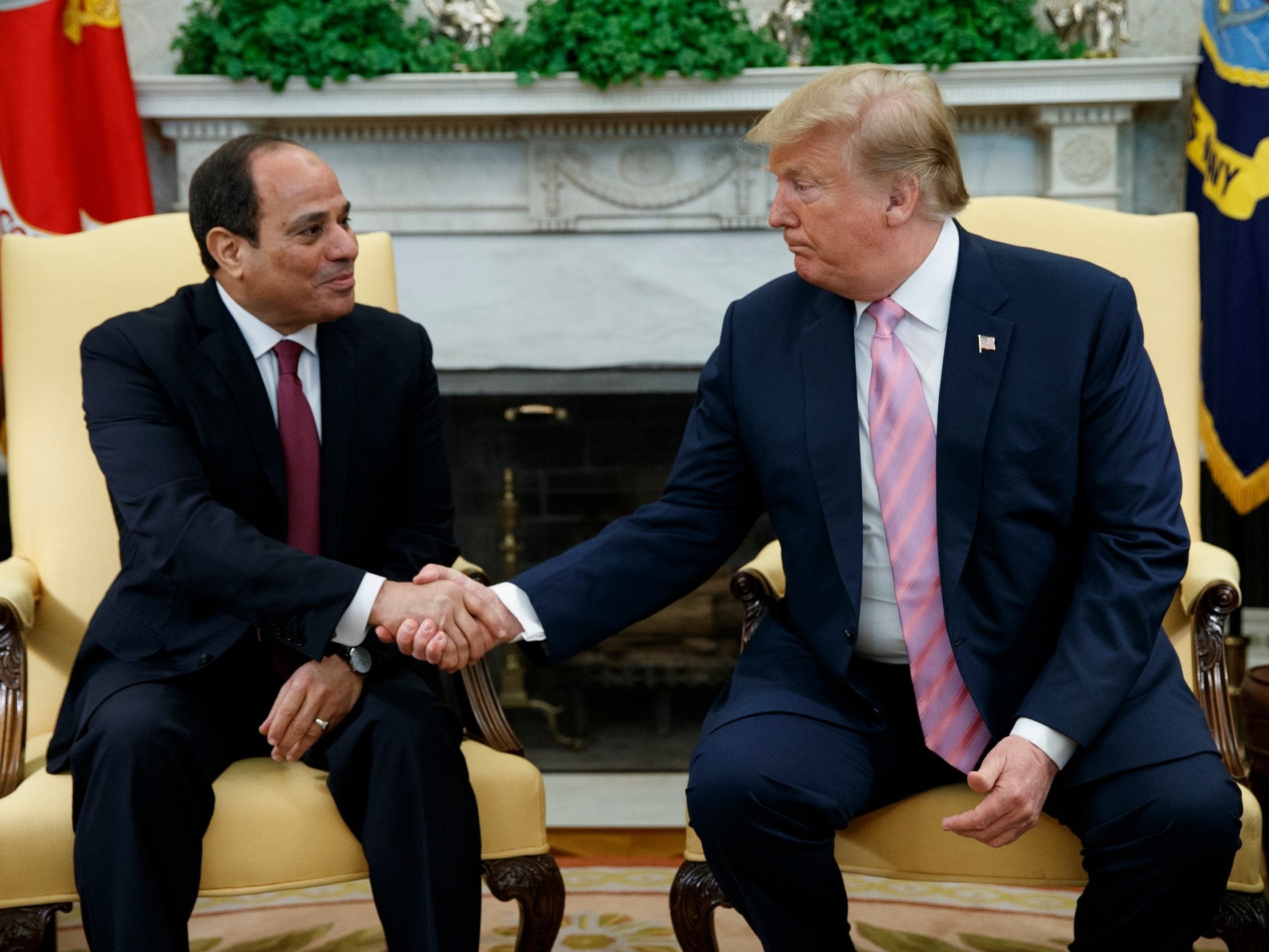Egypt is slipping dangerously far from democracy as the West waves through a Sisi dictatorship
While the international community engrosses itself in Brexit, there is no respect for ‘the will of the people’ in Egypt today

By the time April is over, general Abdel Fattah el-Sisi may be a de facto ruler for life. The constitutional amendment bill passing through the Egyptian parliament on Tuesday will change the term limits for the presidency: it will allow Sisi to remain in power until at least 2030, when he will be 76 years old.
These amendments gift general-turned-president Sisi unimaginable power over our country. Providing his bloated military even greater control over the economy, and the authority to police the political sphere if the “civilian nature of the state is under threat” – whatever that means.
Worse still, it grants Sisi complete control over the appointment of judges and the public prosecutor, enabling him to continue to do away with the democratic freedoms that we, the Egyptian people, worked so hard to reclaim after the fall of Hosni Mubarak.
In spite of this, the international community remains silent.
Only last week, in an exercise designed to strengthen the “strategic partnership” between the US and Egypt, President Donald Trump played host to Sisi, his “great friend”. Yesterday, German chancellor Angela Merkel spoke with Sisi on the phone for advice about political instability in Libya and Sudan. This is the man who rules our nation through a small circle of ingratiating military advisors with increasing cruelty and caprice.
And it wasn’t long ago that European leaders readily joined Sisi in Sharm El Sheikh. There they shared a platform with a man who crushes activism, executes dissidents and marches Egypt to the brink of economic collapse. When these leaders questioned Sisi about his murderous regime, he responded by saying they did not understand. There were “cultural differences” between the Arab world and Europe, he said.
And those leaders sat back, satisfied by the lie told time and again to the West by Middle Eastern tyrants – apparently, democracy isn’t universal it’s cultural.
Over the next couple of days, the constitutional amendments will purportedly go to the public in the form of a referendum. But if we have learned anything over the past six years, it is that Sisi will never cede control to the people.
In 2018, he won the presidential election by a landslide, with 97 per cent of the vote. But it was a sham: Sisi’s opponent was a supporter of his rule, other challengers were jailed, the head of the election authority was under his influence, and a coalition calling for a boycott were silenced.
It is for this reason that last week, we launched, as a group of Egyptians from different political and social backgrounds, an extensive campaign, “BATEL” for electronic voting against the proposed constitutional amendments, a new way forward for the people in the fight to protect democracy and free expression in Egypt.
Despite an all-out cyber-offensive by the regime, the campaign reached over 100,000 signatures in the first 48 hours and now stands at over 285,000. This kind of total repression on free speech, reinforced and heightened by the constant threat of violence, begs the question of what it will take to animate the countries of the West. The principles and standards Sisi dismisses or corrupts are the very values they represent and purport to champion.
A constitution is the very foundation of order and stability, as Americans know perhaps better than the people of any other nation. One wonders what the American people would think if their own president tried to pervert theirs.
But this is what we see happening in Egypt right now. And while the international community engrosses itself in the Brexit conversation, and the importance placed on democracy and the right to have a voice, these same principles are dying in Egypt today. There is no speaking up or speaking out. There is no respect for “the will of the people”.

Democracy is a human right, one found at the heart of every constitution in every successful country. Its absence cannot simply be brushed aside as a “cultural difference”. Those who claim to champion democracy should know that.
The historical importance of this day should not be ignored. Bereft of any vision for the future, “leaders for life” in both Algeria and Sudan have recently seen their premierships overthrown by the people they have long repressed. For too long such men have suffered from an “authoritarian illusion”; detached from the principles of democracy and protected by generational longevity and an apparent permanence in their premierships.
As Sudan’s neighbour to the north, and the Arab world’s most populous nation, the ingredients for a similar powder keg of resentment are already in place in Egypt. The energy of the people filling Tahrir Square back in 2011 is there to stay. Sisi is tightening his grip on the greatest unstable autocracy in the world. Now, on the shores of the Mediterranean, the consequences of an Egyptian implosion, pose significant consequences for not only the Arab world but the entire world.
Amr Darrag was minister of planning and international cooperation in the Egyptian government under president Mohamed Morsi and helped write the constitution after the fall of Hosni Mubarak.
Join our commenting forum
Join thought-provoking conversations, follow other Independent readers and see their replies
Comments
Bookmark popover
Removed from bookmarks